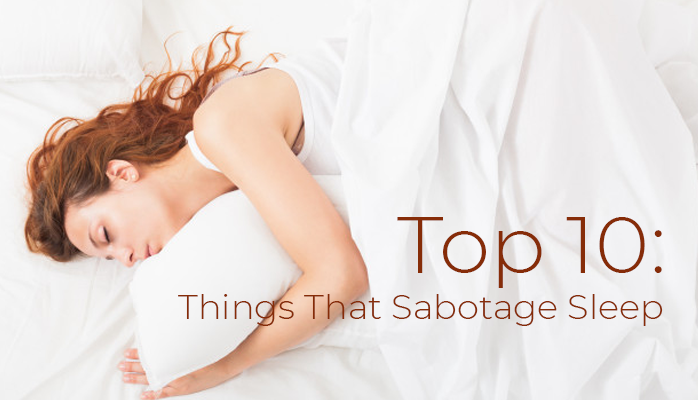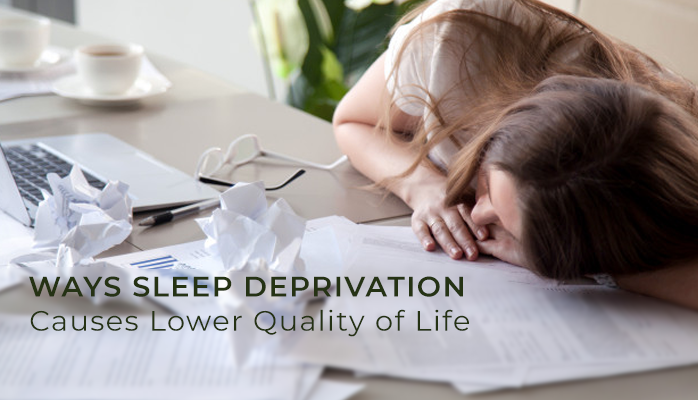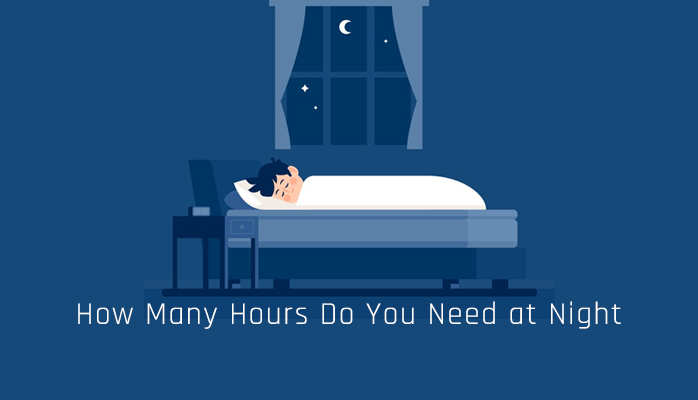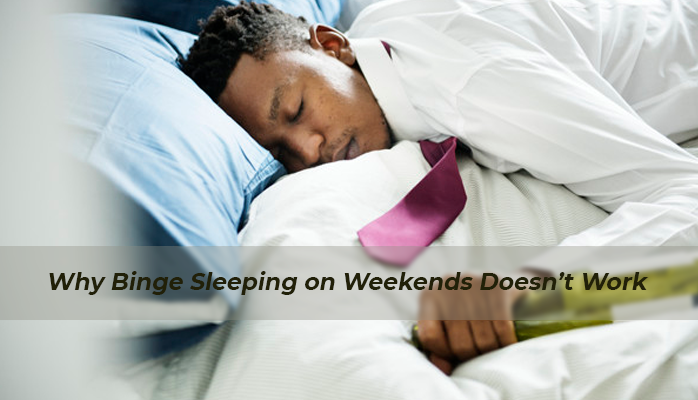Are You of the One in Three Who Don’t Sleep Enough
More than a third of adults in the United States don’t get enough sleep on a regular basis [Centers for Disease Control]. Are you in the 33%?
It’s not a surprising statistic. As things like electronics make their way into normal everyday life (and our bedroom) and most of us sit all day long at work, there are more sleep disruptions now than at any other point in history.
In nearly every facet of your life there is a sleep disruptor lurking in the shadows. It could be your home, your body, your brain, your possessions, or your work – the point is that they are everywhere and you need to know what to look for.
Here are our top ten most common things that sabotage sleep.









